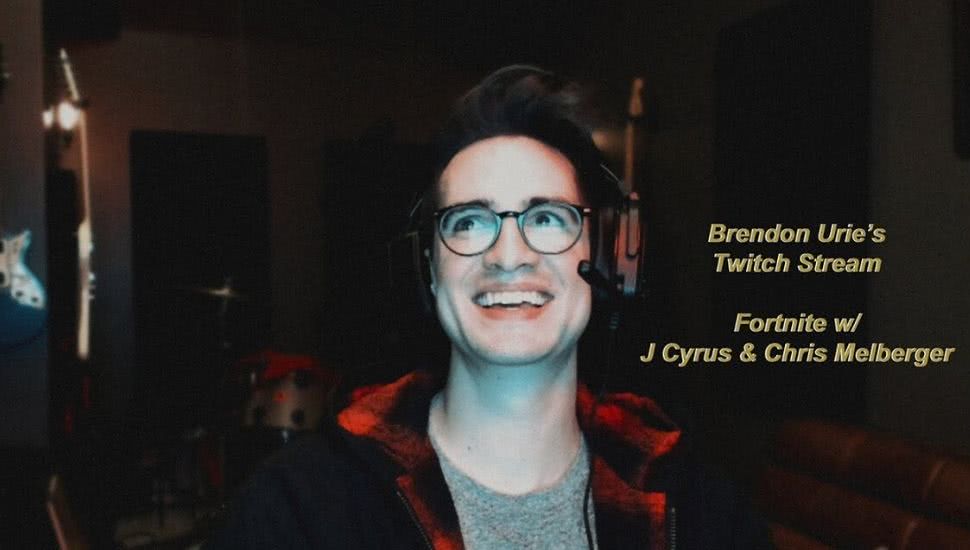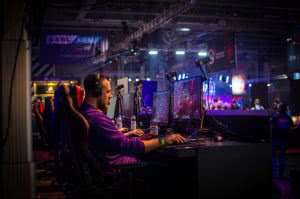What the Australian music industry can learn from gaming and esports

As the Australian music industry reinvents itself to cope with changes in technology and consumer behaviour, there are some lessons it can learn from two industries it is most converging with, gaming and esports.
They offer new revenue sources, business models and possibly even solutions when the next disruption to the music industry arrives. All three sectors are in north growth mode in Australia.
The last full-year figures from the Australian Recording Industry Association (ARIA), covering 2018, showed that the recorded music market grew 12.26% to a worth of half a billion dollars with streaming making up 70%.
The Interactive Games & Entertainment Association reported the Australian video game sector broke the $4 billion mark last year with a current valuation of $4.029 billion.
Its earlier data showed 68% of Australians play interactive games, 27% of players have attempted to make their own games, and there are approximately 225 businesses in the local game development industry.
Consultancy group PwC estimated that Australian esports will grow to $21 million by 2022, a leap from $8 million in 2016.
Watch this video on consoles
Esports, the relentlessly competitive arm of video gaming, is now big bucks tournaments on streaming platforms, broadcast TV and live venues. These soak up the use of music for atmosphere.
PwC predicted esports will continue to outpace the growth of the entire video games sector, with a compounded annual growth rate of 20.6%.
Stephane Gambetta, Cannes’ Esports BAR event’s development director noted: “Music and esports are very similar in terms of fan experience. The live esports tournaments are high-powered audio-visual experiences, similar to music festivals.
“The esports industry is also creating new audio-visual content around music. So it is natural for the two sectors to work together.”
It’s a matter of timing for the music industry
In the last five years, when it emerged from its “oh we’re fucked!” panic days, it came out on the other side as a newer beast looking at new models, revenue sources and fresh inspirations.
But some practises are leftovers from a past era.
One example is that music streaming subscriber prices were set a decade ago primarily to draw consumers away from pirates.
The prices remained cookie-cutter for a decade, and didn’t even dare creep up to keep up with inflation.
It’s only now the services are daring to experiment with multi-price tiers.
Olly Barnes, head of music strategy at Space Ape Games, observed at last year’s NY:LON Connect conference that mobile gaming came from a place that music industry is only now occupying.
“In gaming you don’t cap the value of the consumer,” he said. “Mobile gaming was not responding to blood flow (from piracy). Mobile gaming is about as lean-forward as it gets.”
The relationship between music and games in particular has been a close one
Music keeps gamers engrossed in the more complex moves (research shows they can listen to music for 10 hours straight) while games find new audiences and creative inspiration for musicians and songwriters, and will be essential partners as the music biz goes further into virtual concerts.
It is said that Aerosmith’s version of Guitar Hero earned the band more money than any of their albums, touring or merchandise made them , selling 600,000 (or $25 million) in the first week alone.
On more updated games as Beat Fever, players tap to the sound of the music, and are then invited to stream the tracks in full on platforms like Spotify and Apple Music.
Steve Aoki reported that streams for his track ‘Azukita’ rose by 2.3 million in the first two weeks it was in a game. Aoki is one person from the music world who’s invested in esports, says Forbes.
He, Jennifer Lopez and Imagine Dragons all have stakes in esports leagues.
Avid player Drake and music manager Scooter Braun invested in blue-chip esports team 100 Thieves.
Universal Music Group has two active esports ventures, one a record label called ENTER Records with esports organisation ESL.
League of Legends developer Riot Games has seven-in house composers, and commissioned Zedd and The Glitch Mob to compose anthems for its tournaments.
The Superfan

In for the skill
It’s only in the last few years that Australian concert and festival promoters have come to terms with the importance of the Superfan.
These are the obsessives, the ones who crave for bragging rights for the exclusive, scarce and authentic – and will cheerfully pay extra to get these.
They’re also highest on the loyalty factor, and instrumental in spreading the word of an event through their networks.
At a FastForward conference, Craig Fletcher, SVP of eSports and partnerships at retailer Game, pointed out that these superfans will pay “literally thousands and thousands of pounds” for “horse armour” (gaming term for useless and expensive items) and vanity items which customise their characters’ appearances.
They’ll also spend heavily on additional content for games in episodic form, or as download packs.
Gamers achieve badges for achievements in games, which are displayed on the platform for all to see.
Why not extend these bragging rights, suggested Fletcher.
“Could Spotify put a badge on your profile if you booked a Glastonbury ticket? Have a list of badges almost like a trophy case?”
Show me more of your money
Gamers and esporters are less inhibited than musicians when it comes to cashing in on their skills and celebrity. Not all these practises are applicable to the music industry.
But musicians and their associates can learn from the way they set up subscription blogs and YouTube channels offering tips on playing games better, sell items from cosmetics to keyboards and expensive gaming chairs or game prizes won through their sites, put high value accounts on exchange sites.
They add to their revenue by becoming a gaming coach or a game tester, freelance for video or esport publications, and designing and selling merchandise ranging from mugs and T-shirts to mouse pads.
Twitch
Twitch, the video game’s livestreaming platform founded in 2011, allows users to create their own channels and broadcast their own content through the platform.
Twitch figures for 2019 showed unique daily viewers, monthly users pegged at 140 million, peak concurrent viewership at 2 million, and the number of broadcasters at 2.2 million.
81.5% of the Twitch userbase is male.
As it turns out, Twitch executives have been reaching out to the music industry, stressing how more immediate it is than other social media platforms, and a way to break emerging acts with livestreams turning casual observers into superfans.
Plus, there’s already a huge music community on Twitch to support artists.
Panic! at the Disco’s Brendon Urie is an avid gamer and also does Q&As, Matt Heafy of Trivium streams himself in the studios or looking at the audience from the stage during a concert, while Deadmau5 shares how he programs his stage props.
However the music industry, although keen to exploit the platform, is also apprehensive that the Amazon-owned Twitch is perceived to turn a blind eye to the unauthorised use of copyrighted music by users even if it has a three-strike policy.
Forbes has pointed out how the platform can do more for music creatives.
Twitch broadcasters gain money from their fans through monthly subscriptions (pricing of $4.99, $9.99, and $24.99), “tips” via “bits” or digital currency, donations and ads – all of which are shared 50:50 with Twitch.
New business models
The business models for the music industry were set up by the music industry. But Hypebot indicated that gaming has models that could be adopted or adapted by musicians.
Gaming subscribers have more options and prizes to make it worth their while.
There is a greater level of sponsorships, partnerships and one-off ads.
Gaming’s unlocking of vanity and personalisation items is something the music business has not pushed since the days of MySpace.
The idea of additional content being added after games are officially released has been picked up for albums, by the likes of Kanye West.
How widespread that becomes remains to be seen, but it’s certainly a creative and monetary option for musicians.
Research and development
For the first 50 years of the contemporary music industry, very little research was done on what music was striking what chord with what audience.
This ‘throw it at the wall and see what sticks’ approach was justified because a shitload of records was being sold, and it was very hard to research an audience because the appeal of music was so personalised.
Anyway, it seemed a really uncool and cynical process for something as spiritual and life-defining as music. But these days, the fact that an entire career can be titanic-ed from one stiffing single means the pressure on record companies and artist management to get it right first time.
Now streaming services provide analytics and tools to understand fan behaviour.
Feeding 100 hit songs into a computer to find out what elements made them popular, seem to be acceptable.

Taking it to another another world
Because they’re such big businesses and with expanding audiences and playing devices, gaming and esports wouldn’t think of introducing a new product into the marketplace without extensive research.
Companies actually hire psychologists to advise them on making their product more compelling and more fun.
That gaming has been adopted by females and older demographics in great numbers makes it essential they do not get the idea they are being considered second class citizens.
Companies also need to be reassured that the gamer is going to get that same level of excitement and skill rewarding as the game becomes more advanced.
Psychologists are considered so elemental that they can earn $100k and get cash bonuses and stocks. Now that would be an interesting entry in the next record company financial report.
This article originally appeared on The Industry Observer, which is now part of The Music Network.


































